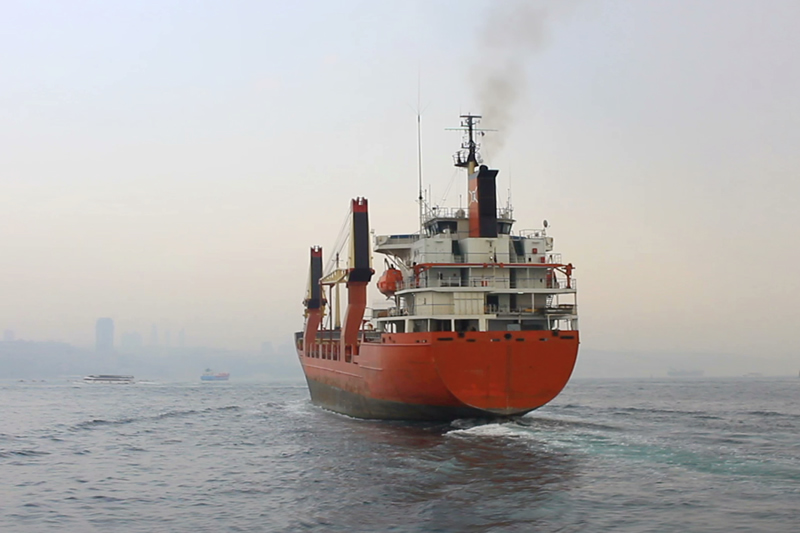Support For A Global Shipping Industry Emissions Levy Grows
8
Following on from the two new Emission Control Areas (ECAs) in the world's seas and oceans in the Canadian Arctic Waters and in the Norwegian Sea, the majority of UN International Maritime Organisation (IMO) member states have called for a standard levy on greenhouse gases. This proposed new levy, along with a fuel standard requiring ships to gradually increase their use of green energy, has the potential to transform global trade into a zero-carbon industry. However, it must first navigate challenging political waters at the UN agency.

In a statement following the IMO meeting, Sandra Chiri of the Ocean Conservancy and the Clean Shipping Coalition said, "The UN is on the verge of adopting the world's first global emissions price, but its success depends on the commitment of the countries involved.
"The March IMO talks gave us hope, as a clear majority of countries – including those in the Caribbean, the Pacific, Africa, as well as the EU and Canada recognise the significant opportunity that pricing shipping emissions presents for the industry's clean transition and for benefiting all developing countries. It's unfortunate that a small but persistent minority seeks to undermine this crucial climate measure."
Achieving these ambitious goals remains a key challenge. During the March IMO meeting, member states agreed on the need for a new global fuel standard and a global pricing mechanism for maritime GHG emissions, along with tougher efficiency rules.
The next steps on reducing greenhouse gas emissions from shipping have been outlined as follows. Other items relating to environmental issues are summarised below all relating to shipping pollution including some wider elements outside of greenhouse gas issues.
- Approved the establishment of two new Emission Control Areas (ECAs), in Canadian Arctic Waters, for Nitrogen Oxides, Sulphur Oxides and Particulate Matter; and in the Norwegian Sea for Nitrogen Oxide and Sulphur Oxides.
- Approved new recommendations for the carriage of plastic pellets by sea in freight containers, covering stowage, packaging and correct transport/cargo information.
- Endorsed, in principle, the draft action plan for the reduction of underwater noise from commercial shipping, with a view to further consideration and final endorsement at MEPC 82.
- Endorsed the updated work plan for the development of guidelines for new alternative fuels, including the development of guidelines for hydrogen and ammonia as fuels, low flash-point fuels and mandatory instruments for methyl/ethyl alcohols.
- Endorsed the list of provisions and instruments for revision and/or development under the Ballast Water Management Convention and approved the interim guidance on the application of the BWM Convention to ships operating in challenging water quality conditions, as well as the Guidance for the temporary storage of treated sewage and/or grey water in ballast water tanks.
More information on new and existing marine emissions requirements are satisfied by Protea’s range of emissions analysers and fuel oil test equipment. The need to demonstrate environmental responsibility is key for today’s marine and offshore industries. Charterers and the public demand high standards of performance and reliability. Fuels and exhaust gas emissions are also the subject of international, regional and national controls. The most significant is the International Marine Organisation (IMO) MARPOL Annex VI.
Regulations for the Prevention of Air Pollution from Ships, which also applies to mobile offshore drilling units and other oil industry platforms. All of these ships will have diesel engines of one sort or another, even the very small number of vessels that have turbine driven powerplant. More information can be found at https://www.protea.ltd.uk/marine-requirements.
#protea #emissions #monitoring #cems #ftir #gas #analysers #shipping #marine #carbon #capture
Other Articles
Carbon Capture Utilisation & Storage (CCUS) In 2026
16
Global Underground CO2 Storage Data Offers Hope Amid Rising Emissions
01
IMO Postpones Adoption Of Global Net-Zero Shipping Framework
04
Pioneering Carbon Capture Projects Ready For Construction
03
Methanol & Ammonia Deemed Ready As Zero-Emission Shipping Fuels
01
Carbon Capture Storage Reaching A Turning Point In Decarbonisation
13
CCS To Capture 15% Of Shipboard Carbon Emissions By 2050
29
Global Shipping Industry Struggles To Navigate Net Zero Transition
21
Carbon Capture Surges as Economics Policy & Industry Demand Align
14
GHG Emissions At Ports On The Rise Despite Initiatives
07
